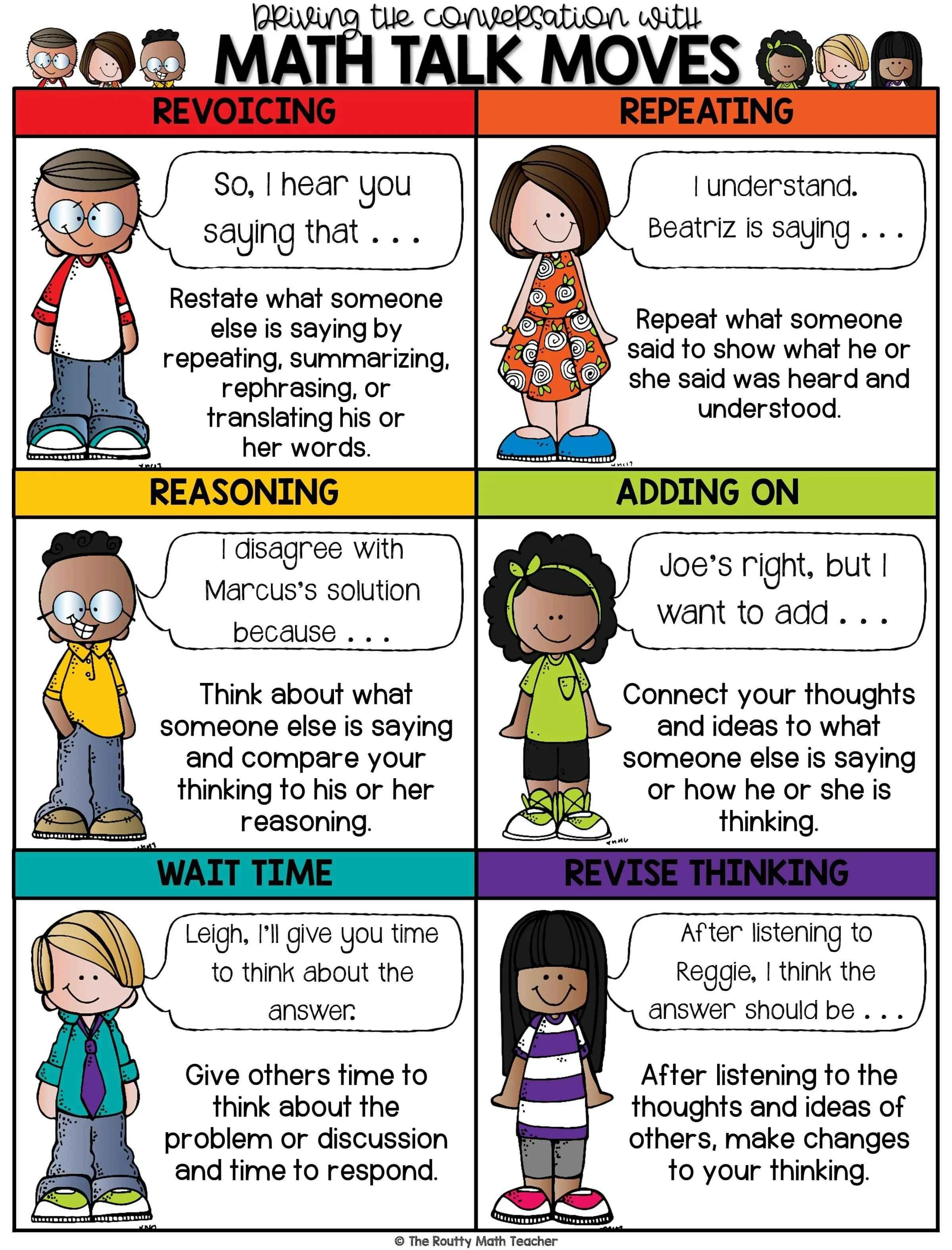Mathematics
At Tamaoho School, we are committed to developing strong mathematical foundations through the explicit teaching of mathematics knowledge. Our approach focuses on the sequential teaching of number concepts to support effective problem-solving skills.
Using the Math Talk approach (see diagram below), we engage learners in meaningful discussions about mathematical ideas, encouraging them to articulate their thinking and deepen their understanding. This method not only builds confidence in mathematics but also fosters a collaborative learning environment where learners learn from each other.
By prioritising a structured and interactive approach to mathematics, we aim to equip our learners with the skills and knowledge they need to excel in problem-solving and apply mathematical concepts in real-world situations.
All learners work with the teacher in small groups to work on explicit skills to teach to their mathematical gaps, which leads to accelerated learning.

Here are some ways you can help
Engage in Everyday Math Activities: Involve your child in activities that incorporate math, such as cooking, shopping, or playing board games that require counting or strategy.
Practice Number Facts: Help your child practice basic number facts such as addition and multiplication tables, through fun activities like flashcards or online games.
Encourage Math Talk: Discuss mathematical concepts and problems with your child. Encourage them to explain their thinking and reasoning as they work through math problems.
Set Real-Life Challenges: Give your child practical math challenges, such as calculating the total cost of items while shopping or measuring ingredients for a recipe.
Support resources
The resources linked below will help you support your child's math knowledge development at home. Together, we can help our learners build a strong mathematical foundation and confidence in their abilities.
› Numbers to 5
› Numbers to 10
› Numbers to 20
› Numbers to 50
› Numbers to 100
› Numbers to 1000
› Fractions, Multiplication and Decimals
› Fractions, Decimals and Division
Maths Problems
Math problems are important because they help develop critical thinking and problem-solving skills, enabling learners to apply mathematical concepts to real-world situations. They also encourage logical reasoning and enhance learners' ability to analyse and approach challenges systematically.